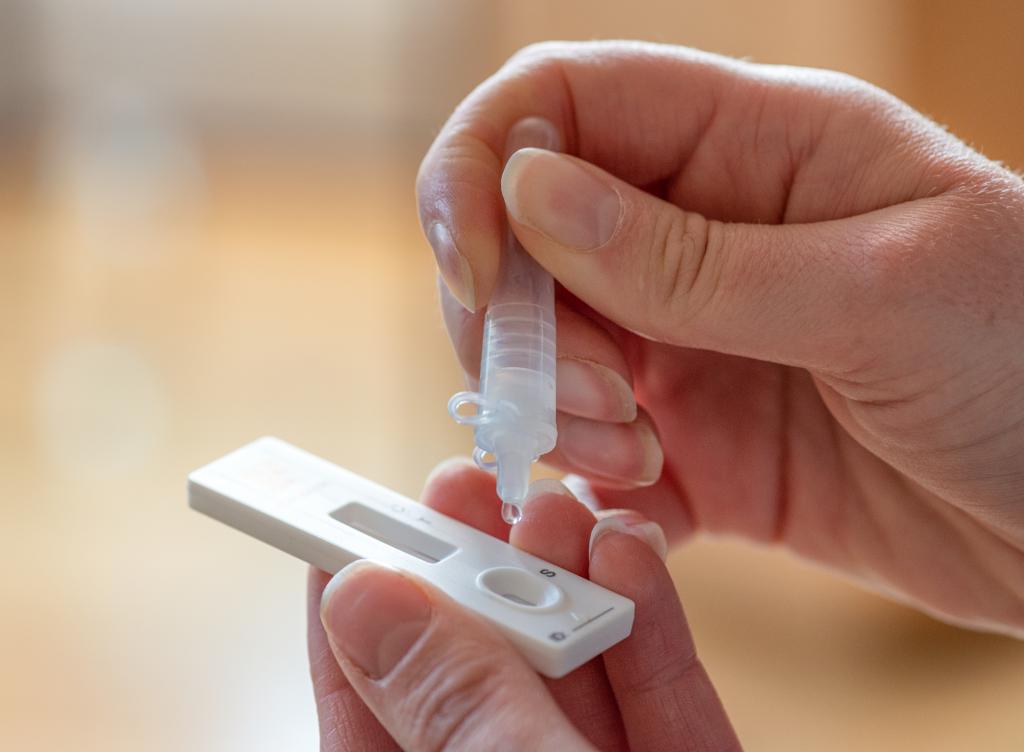
Australia is experiencing its eighth COVID wave, just in time for the holidays (sigh). The rise in infections is expected to peak during the Christmas period, though you’ve probably already noticed your friends dropping like flies with some illness or other. For some, it might be hard to tell if that illness is indeed the spicy cough — here’s what you need to know about testing.
If you’ve recently found yourself to be sick as a dog and yet continue to test negative on rapid antigen tests (or RATs as we like to call them), you’re not alone. Here’s all your RAT-related questions answered before the festive season.
How do RATs work?
Rapid antigen tests detect the presence of proteins in the COVID-19 virus, meaning they work best when you are in the infectious phase of COVID.
The more symptomatic you are, the higher your viral load, and the more likely the tests are to pick up a positive result. If you have COVID but aren’t symptomatic, it’s possible you’ll return a false negative.
Can RATs detect new COVID strains?
According to the TGA, there is evidence from RAT manufacturers that the tests pick up new variants, at least up until Omicron sub-variant BA. RATs have also been able to pick up all of the variants of concern that have arisen and named by the WHO.
The tests are designed to detect a part of the SARS-CoV-2 virus that is not as likely to mutate. They are also regularly assessed by the TGA to make sure they are keeping up as the virus evolves.
It is possible theoretically that there will be a strain that evades them, but so far this hasn’t been reported to have happened. So the short answer is yes, RATs should be able to detect new strains.

Then why do I keep testing negative even though I feel like I have COVID?
There’s a few reasons a RAT can return a false negative result.
First, make sure the tests you are using aren’t expired, because yes, the tests have use by dates that can range from 18 to 24 months from the time of manufacture, depending on the brand! Being past the expiration doesn’t necessarily mean a test will no longer work, though. It’s more that there isn’t a lot of data on the long term use of the tests and their accuracy over long periods of time. The TGA recommends against using RATs past their expiry date, but some manufacturers have also extended the shelf-life of their RATs as the data keeps coming.
If you’ve had the same boxes of tests since the 2021 lockdowns, definitely check to see if they are still good to use, and consider buying a new batch.
Tests also have storage instructions. If they’re exposed to extreme temperatures, this can affect their sensitivity — so if your tests have been languishing in your extremely hot rental, it’s probably good to do another test from a new batch for accuracy’s sake.
Dr Michael Mrozinski, a GP based in Melbourne, also recommends swabbing both your tonsils as well as your nose when you do a RAT.
“Everybody always remembers to do the nostrils, but don’t forget to do the back of the throat or else you might get a false negative,” he warned to his TikTok followers last year.
If you’ve tried multiple tests, which aren’t past their use-by date, and you’re still testing negative, then there’s also the simple fact that you may just not have COVID. It’s pretty easy to assume that every illness where you get a stuffy nose or sore throat is COVID, but you also may have the flu or a cold or just another virus that isn’t COVID. It happens!
RATs are pretty reliable (especially if you use multiple of them), so as long as you’re in the habit of being careful, testing regularly and wearing a mask, don’t stress.
Image: iStock/AzmanL



